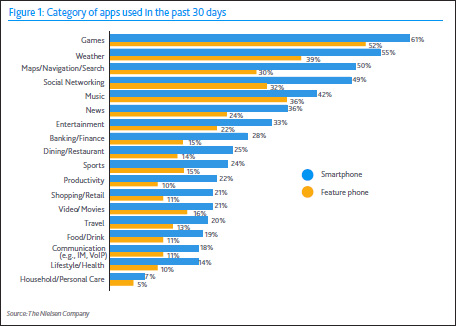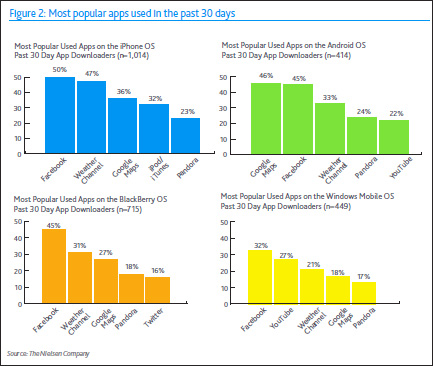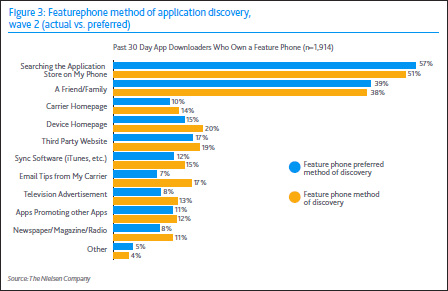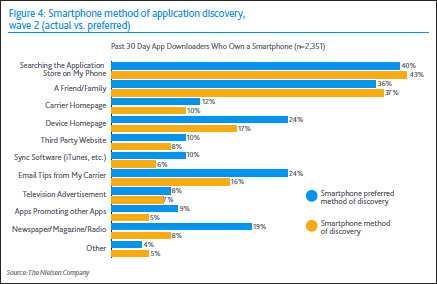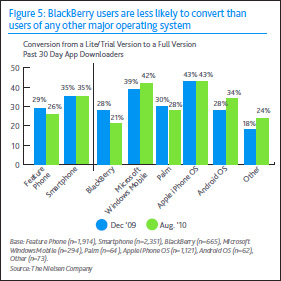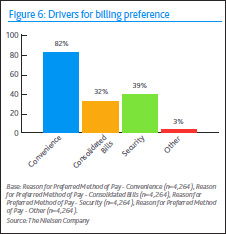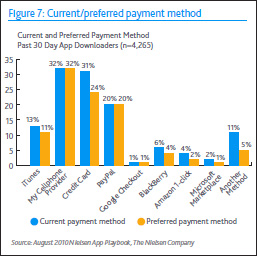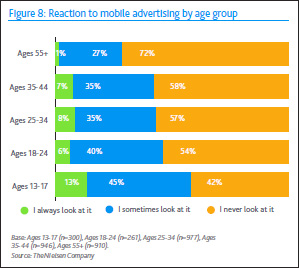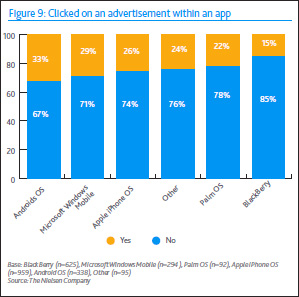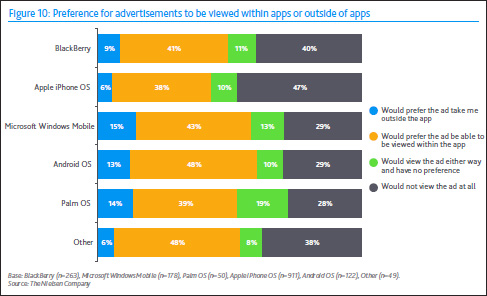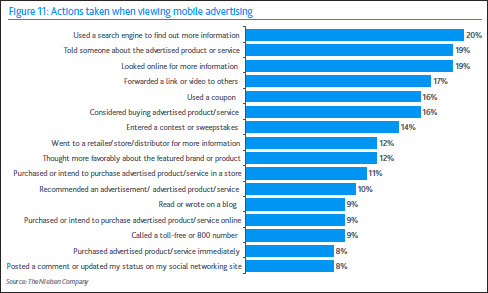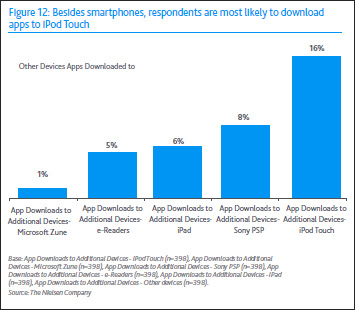September 20th, 2010 by Arjan Olsder Posted in Research & Stats | No Comments »
 Nielsen has generated a new report called The State of Mobile Apps, specially for the AppNation event. Amongst other details, it shows iPhone owners are still consuming the biggest amount of apps.
Nielsen has generated a new report called The State of Mobile Apps, specially for the AppNation event. Amongst other details, it shows iPhone owners are still consuming the biggest amount of apps.
Currently, 1 in 4 US citizens have a smartphone. By the end of 2011, Nielsen believes this number will double and smartphones will be dominating the US market. As of June, 59% of smartphone and 9% of featurephone owners state they have downloaded apps in the past 30 days.
In their first graph, Nielsen shows the app demand for featurephone and smartphone owners. Unsuprisingly, they are pretty much comparable and mobile games dominate on both platforms. Second place on both platforms goes to weather based apps and third is for navigation on the smartphone and music on the featurephone.
Searching their apps on the phone’s official store remains the primary way for app discovery. Friends and family recommendations come second. Review websites are not that important for discovery yet, but interest from consumers is growing.
iOS users are likely to download twice as much content from their app store compared to Android or BlackBerry. iOS users are also more likely to download paid apps. For every two free apps, one paid is being downloaded. With the pricing levels of BlackBerry just being lowered, that might change soon. For Android, many think the lack of proper billing methods is still the key issue.
Mobile users are also very interested in mobile advertising. 58% of teens check out the ads they see. 20% of consumers have checked out an ad. 10% have even recommended the advertisement to friends or family. 16% has used a coupon from an ad and 14% have entered in advertised sweepstakes and contests.
Nielsen also researched the app hunger on other connected devices. The iPod Touch is the most popular device for downloading apps and Sony’s PSP takes the sweet second spot. iPad takes third.
Congratulations
Your first AWS Elastic Beanstalk Node.js application is now running on your own dedicated environment in the AWS Cloud
This environment is launched with Elastic Beanstalk Node.js Platform
What’s Next?
- AWS Elastic Beanstalk overview
- AWS Elastic Beanstalk concepts
- Deploy an Express Application to AWS Elastic Beanstalk
- Deploy an Express Application with Amazon ElastiCache to AWS Elastic Beanstalk
- Deploy a Geddy Application with Amazon ElastiCache to AWS Elastic Beanstalk
- Customizing and Configuring a Node.js Container
- Working with Logs


